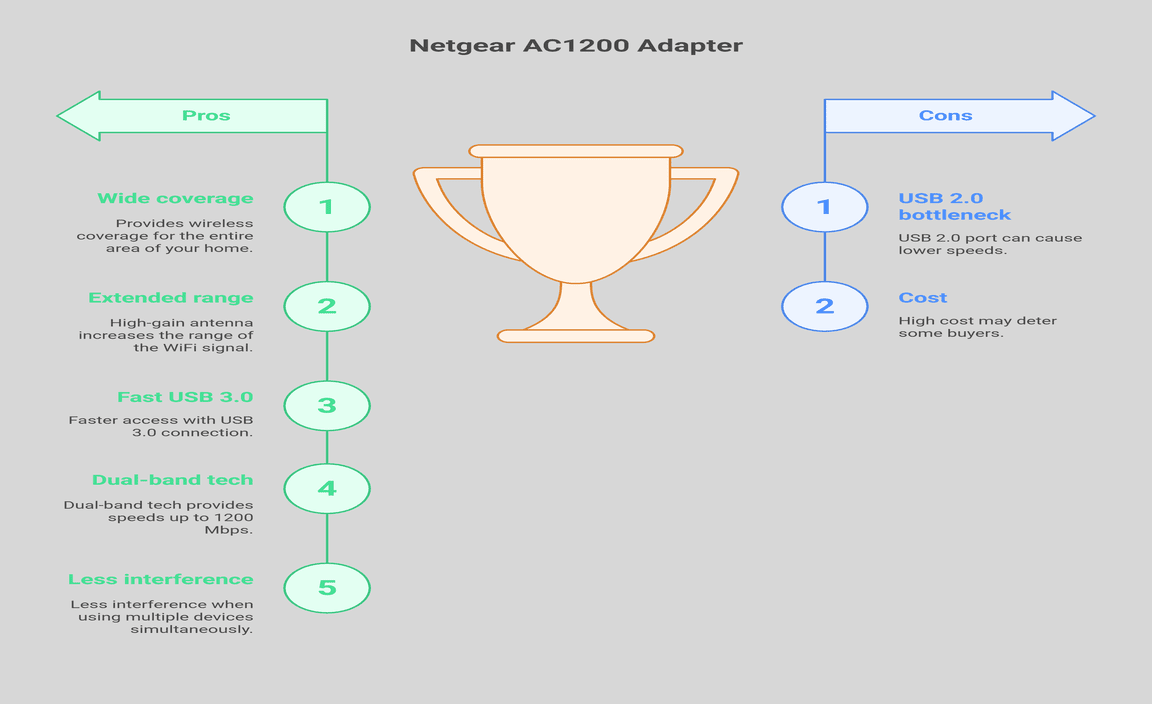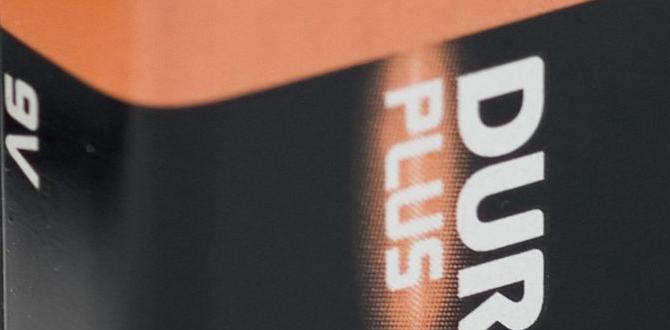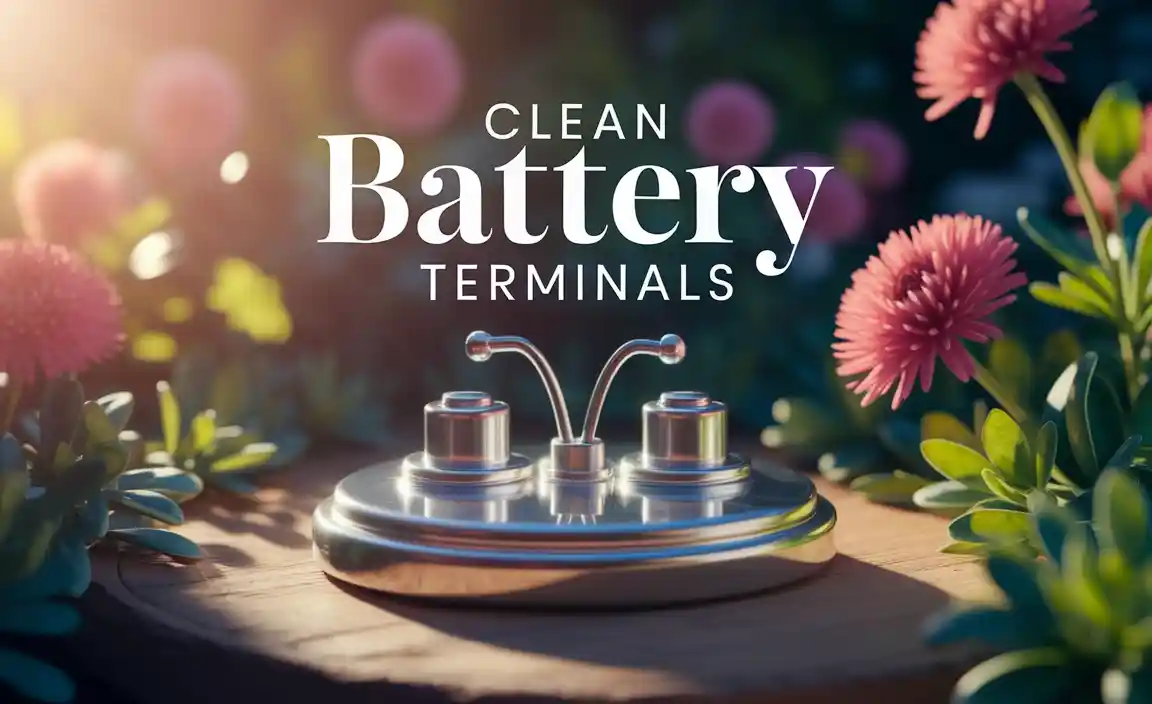The scrap value of a car battery can range from $5 to $20 or more, depending on the weight, lead content, and current market prices for recycled metals. It’s a smart way to get a little money while responsibly recycling.
Is your old car battery sitting around, and you’re wondering if it’s worth anything? Many people toss them out, but they can hold surprising value for scrap! Don’t let that old battery go to waste. We’ll break down exactly how much you can expect to get for it and how to find the best deals for recycling.
We know dealing with car parts can seem tricky, but understanding your car battery’s scrap value is simpler than you think. You might be surprised to learn that recycling your battery isn’t just good for the planet – it can put a few extra dollars in your pocket. Stick with us, and we’ll guide you through everything you need to know, from what makes it valuable to how to cash in.
Scrap Value of a Car Battery: What Makes It Worth Money?
So, what exactly gives an old car battery its value? It all boils down to one key element: lead. Car batteries are packed with it, and lead is a valuable commodity when it comes to metal recycling. Because it’s a heavy metal and highly recyclable, the scrap yards pay for it.
Beyond lead, other components contribute, like the plastic casing and the acid. While lead is the main moneymaker, the entire battery is designed to be taken apart and reused.
The Role of Lead
Lead-acid batteries, the standard type found in most cars, contain pure lead in their grids and plates. These are the parts that store and deliver the electrical charge. When a battery is scrapped, these lead components are what recyclers are primarily after. Lead is in high demand across various industries, from new batteries to construction materials, making it a consistently valuable scrap metal.
Other Components
The plastic casing of the battery also has some value. It’s typically made from durable polypropylene, which can be shredded and reused to make new plastic products. The sulfuric acid inside is carefully neutralized and treated. While not directly paid for in the same way as lead, responsible recycling ensures these materials are handled safely and don’t harm the environment.
How Much Can You Get For A Scrap Car Battery?
The amount of money you’ll get for a scrap car battery isn’t a fixed price. It changes based on several factors. Think of it like the stock market for metals – prices go up and down. However, you can generally expect a few dollars for each battery.
Average Price Range
On average, a standard car battery will fetch anywhere from $5 to $20 when sold as scrap. Sometimes, if the market is particularly strong for lead or if you have multiple batteries, you might get a bit more per battery. Some places might even offer you a flat rate per battery, say $10, regardless of its exact weight.
Factors Influencing Value
- Weight: Heavier batteries generally mean more lead, so they’re worth more.
- Type of Battery: While most cars use lead-acid batteries, there are slight variations.
- Current Market Prices for Lead: The price of lead on the global market directly impacts how much scrap yards will pay.
- Scrap Yard Policies: Each recycling center has its own payment rates.
- Condition: A battery that is mostly intact and hasn’t been smashed apart will be easier to process.
Lead Prices and Market Fluctuations
The price of lead is the biggest driver for car battery scrap value. According to the London Metal Exchange (LME), lead prices can vary daily. While it’s not practical for most people to track live lead prices, scrap yards do, and their offers reflect these market shifts. For instance, if lead prices are high, you’ll get more per pound for your battery. Conversely, if lead prices dip, the payout will be lower.
Where Can You Sell A Scrap Car Battery?
Finding a place to sell your old car battery is usually straightforward. The most common places are dedicated scrap metal yards or sometimes auto parts stores that have recycling programs.
Scrap Metal Yards
These are your go-to for selling scrap metal. They buy all sorts of metals, and car batteries are a common item. They have the equipment to handle them safely and process them efficiently for recycling.
How it works: You bring your battery to the yard, they weigh it, and they pay you based on the current price of lead and other materials. It’s a simple transaction. Many reputable scrap yards are listed online. A good resource for finding local scrap yards that accept batteries can be found on sites like the U.S. Environmental Protection Agency (EPA) website, which offers guidance on recycling lead-acid batteries and often lists disposal options.
Auto Parts Stores and Retailers
Many national auto parts chains, like AutoZone, Advance Auto Parts, and O’Reilly Auto Parts, offer core charges or recycling programs for old batteries. When you buy a new battery, you’re often charged a “core fee.” You get this fee back when you return your old battery. If you’re not buying a new battery, some stores might buy your old one for scrap value, though this is less common than simply applying it as a core credit.
It’s always best to call ahead and ask about their specific policies for accepting scrap batteries and their payout rates.
Local Garages and Mechanics
Some local repair shops or garages might also accept old car batteries for their scrap value. They often have established relationships with scrap yards. Asking your trusted mechanic is a good starting point.
Are All Car Batteries Worth The Same For Scrap?
No, not all car batteries are worth exactly the same for scrap. While the basic components are similar, some characteristics can influence their value.
Battery Size and Weight
Larger, heavier batteries typically contain more lead and therefore have a higher scrap value. A battery for a large truck will likely be heavier and worth more than a battery for a small compact car. Weight is often the primary factor scrap yards consider when determining their payout.
Battery Type
The vast majority of cars use standard lead-acid batteries. However, some newer or specialized vehicles might use different battery technologies (like AGM – Absorbent Glass Mat batteries). While still lead-acid based, their construction can sometimes affect their recyclability or the purity of the lead. For scrap purposes, the difference is usually minimal for the average consumer, as the lead content remains the main value driver.
Condition of the Battery
A battery that is intact is more valuable than one that has been damaged or broken apart. Scrap yards prefer to receive batteries that haven’t leaked excessively or had their internal components significantly tampered with, as this makes their processing easier and safer. If the plastic casing is cracked or missing, it might slightly reduce the perceived value, though the lead content still dominates.
How To Prepare A Car Battery For Scrap
Preparing your car battery for scrap is simple, but a few steps ensure safety and maximize your return. The most important thing is to handle it carefully.
Safety First!
Car batteries contain corrosive sulfuric acid and can produce explosive gases. Always wear safety glasses and gloves when handling a car battery. Avoid sparks or open flames near the battery. If the battery appears damaged or is leaking, handle it with extreme caution and consider contacting a professional waste disposal service.
Important Safety Gear:
- Safety glasses or goggles
- Heavy-duty gloves
- Old clothing (in case of spills)
Cleaning and Handling
You don’t need to do a deep clean, but it’s a good idea to wipe down the exterior of the battery to remove excessive dirt or grime. Ensure the terminals are not corroded to the point where they could break off easily. Don’t attempt to open the sealed caps on the battery; leave it as it is. The key is to transport it without spilling any acid.
Transporting Your Battery:
- Place the battery upright in a sturdy box or plastic container.
- Ensure it cannot tip over during transport.
- Line the container with a plastic bag to catch any potential leaks.
Legalities and Regulations
In many places, it’s illegal to simply throw car batteries in the trash due to their hazardous materials. Recycling them is the responsible and often legally required option. Most scrap yards are licensed and accustomed to handling these materials, so selling to them is perfectly legal.
For more information on battery regulations and recycling, you can check resources from the EPA’s Lead Laws and Regulations page. They provide comprehensive details on managing lead-acid batteries.
What About Other Types of Batteries?
While we’re focusing on car batteries, it’s worth noting that other common batteries have different values and recycling paths.
Phone Batteries
Your old smartphone battery is tiny compared to a car battery. While it contains valuable metals like lithium, cobalt, and nickel, the small quantity in a single phone makes its direct scrap value negligible for an individual. However, these batteries are crucial to recycle through designated electronics recycling programs because they contain hazardous materials that can contaminate landfills. Many phone manufacturers and electronics retailers offer free recycling for these batteries.
Power Banks
Similar to phone batteries, power banks contain rechargeable lithium-ion cells. Their scrap value is very low on an individual level. The primary reason for recycling power banks is environmental protection. They should be taken to electronic waste recycling centers, not to scrap metal yards that deal with lead-acid car batteries. Some electronics stores and local waste management facilities provide designated drop-off points.
Battery Chargers
Battery chargers themselves are electronic devices. When they break or become obsolete, they should be recycled as e-waste. They contain metals and plastics, but their value as scrap is minimal. The best practice is to take them to an e-waste recycling center to ensure proper disposal of their components.
Different Battery Technologies
There are many battery types, from the standard lead-acid in cars to lithium-ion in your electronics, and even newer technologies emerging. Each has a different chemical composition, which affects its value for scrap and its environmental impact. Lead-acid batteries are highly valued for their lead content and well-established recycling infrastructure. Lithium-ion batteries, while containing valuable metals, are more complex to recycle and require specialized facilities, hence the lack of direct cash payout for small quantities.
For example, lithium-ion batteries found in electric vehicles (EVs) are a significant focus for recycling due to their size and value, but this is a large-scale industrial process, not something an individual would do with a small consumer battery.
Calculating Scrap Value: A Simple Guide
While you can’t easily weigh a car battery at home and calculate the exact price down to the cent, you can get a good estimate. Most scrap yards pay by the pound for lead.
Weight and Price Per Pound
A typical car battery weighs between 30 to 50 pounds. Scrap yards often pay a certain price per pound for lead-acid batteries, typically ranging from $0.20 to $0.60 per pound, though this can fluctuate. If a yard pays $0.30 per pound and your battery weighs 40 pounds, you’d get approximately $12.
A simple way to estimate is to find out the average weight of a car battery and multiply it by the current scrap price per pound. You can often find information on average battery weights online or by asking a local auto parts store.
Example Calculation Table
Let’s look at a hypothetical scenario. Remember, these are estimates, and actual prices will vary.
| Battery Weight (lbs) | Estimated Scrap Price Per Pound ($) | Estimated Scrap Value ($) |
|---|---|---|
| 30 | 0.25 | 7.50 |
| 35 | 0.30 | 10.50 |
| 40 | 0.35 | 14.00 |
| 45 | 0.40 | 18.00 |
This table shows how a heavier battery at a higher per-pound rate yields a better return. It highlights why knowing the weight and the yard’s rate is important.
Tips for Maximizing Your Return
- Shop Around: Call a few different scrap yards in your area to compare their prices.
- Sell Multiple Batteries: If you have more than one old battery, you might get a better deal when selling in bulk.
- Inquire About Core Charges: If you’re buying a new battery, always ask about and return your old one to get your core charge back. This is often more money than the scrap value itself!
Frequently Asked Questions (FAQ)
1. How much is a scrap car battery typically worth?
A standard car battery is usually worth between $5 and $20 as scrap. The exact amount depends on its weight, the current market price for lead, and the scrap yard’s rates.
2. Where can I sell a scrap car battery?
You can sell scrap car batteries at scrap metal yards, many auto parts stores (especially when trading in for a new battery to get the core charge back), and sometimes at local mechanic shops.
3. Is it safe to handle an old car battery?
Yes, if you take precautions. Always wear safety glasses and gloves when handling a car battery because it contains corrosive acid and can release explosive gases. Avoid sparks and open flames.
4. Do I need to clean my car battery before selling it for scrap?
You don’t need to clean it extensively. Wiping off excessive dirt is fine, but ensure it’s not leaking excessively and that the terminals are intact. Don’t try to open it up.
5. Can I get money for my old phone battery or power bank?
Individually, phone batteries and power banks have very little scrap value due to their small size. It’s more important to recycle them responsibly through electronics recycling programs because they contain hazardous materials, rather than trying to sell them for cash.
6. How do scrap yards determine the value of a car battery?
Scrap yards primarily determine the value based on the battery’s weight, as the lead content is the most valuable component. They then apply their current price per pound for lead-acid batteries.
7. Is it illegal to throw a car battery in the trash?
In most places, yes, it is illegal to dispose of car batteries in household trash because they are considered hazardous waste. Recycling them at a scrap yard or through an authorized program is the correct and legal way to dispose of them.
The Environmental and Economic Benefits of Recycling
Recycling your old car battery is a win-win situation. Not only can you make a little money, but you’re also doing a great service for the environment. Lead-acid batteries are one of the most recycled consumer products, and for good reason.
Reducing Environmental Harm
When car batteries are not recycled properly, they can end up in landfills. Batteries contain lead and sulfuric acid, which can leach into the soil and groundwater. This pollution can harm ecosystems and pose serious health risks. Recycling ensures these hazardous materials are handled safely and don’t contaminate our natural resources. The U.S. EPA highlights that recycling significantly reduces the need to mine for new lead, which is an energy-intensive and environmentally impactful process.
Conserving Resources
When you recycle a car battery, the lead and plastic components are saved and can be used to make new batteries and other products. This conserves valuable natural resources and reduces the energy required to manufacture new materials from scratch. For instance, recycling lead requires significantly less energy than mining and processing virgin lead ore.
Supporting a Circular Economy
Recycling car batteries is a perfect example of a circular economy in action. Instead of a linear “take-make-dispose” model, materials are kept in use for as long as possible. The old battery is transformed into raw materials that feed back into the manufacturing process, creating a more sustainable and economically efficient system.
Conclusion
So, how much is a car battery worth for scrap? You’ve learned that it’s not just about tossing an old item, but about unlocking a bit of its inherent value. By understanding that lead is the key component driving its worth, you can confidently expect to get anywhere from $5 to $20 or more for a typical vehicle battery. This value fluctuates with market prices for lead but is a consistent incentive for responsible disposal




